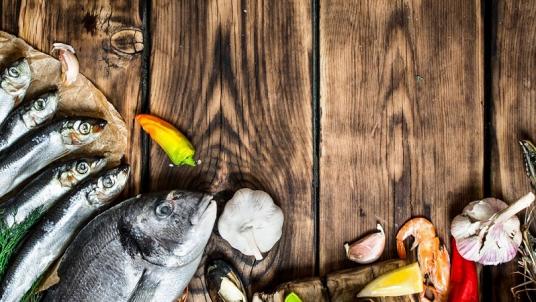During this time of such profound upheaval, the Basque Culinary Center and FRUTO wish to bring the issue of sustainability to the table and discuss how the gastronomy sector can engage with some of the many environmental, economic and social realities looming on the horizon. They will do so in the good company of international experts, and through stimulating action-oriented dynamics.
With the goal of sharing knowledge and experiences and providing work tools, an international conference will be held on November 19th and 20th. This online event is open to the public and is designed to raise collective awareness about the impact gastronomy can have when it fully comprehends and exploits food’s transformative power, and what it means to foster sustainable development in our day and age.
With presentations and workshops, this event wishes to bring together a variety of demographics: professionals from across the gastronomy sector, people attuned to these issues, and in particular, young people from around the globe who, like so many of their peers, are determined to change our means and forms of production and consumption.
“We need to change how humans relate to food. Although it may be hard to believe, within just a few decades, we will have a problem of massive proportions on our hands, with irreparable and enormous effects on our daily lives. The role of chefs, as well as the rest of the actors who comprise the sector's value chain, is increasingly evident and urgent: we must take sustainable action, and soon, understanding that food is not only a source of health but also of knowledge, history, and culture. It is absolutely fundamental that we involve and empower the voices of the younger generations”, insists Alex Atala, founder of FRUTO.
Atala, chef of the DOM restaurant, will form part of a remarkable team that includes chefs Douglas McMaster (Silo, UK), Matt Orlando (Amass, Denmark), Tracy Chang (Pagu, USA), Selassie Atadika (Midunu, Ghana), Oliver Holt (Kitchen Farming Project, USA) and Jaime Rodríguez (Caribe project, Colombia); along with interdisciplinary experts such as ethnobotanist Miles Irvin (UK), activist Chido Govera (Zimbabwe), designer Elsa Yranzo (Spain), architect Carolyn Steel (UK), millennial environmentalist Camille Etienne, Pamela Coke-Hamilton (of the International Trade Center), among many others.
“In a year as uniquely challenging as 2020, we cannot afford to lose sight of the sustainability debate. On the contrary, it must be contextualized in today’s complex and demanding circumstances, wherein gastronomy can actively and creatively participate in initiatives of unstoppable transformation”, explains Jose Mari Aizega, director of the Basque Culinary Center. He invokes this conference to analyze how to “reduce, repair, recover, reuse and recycle, but also how to rethink and re-imagine our traditional models of interacting with food”.
The conference’s agenda will address topics such as circular economy, biodiversity, efficient resource management, food design, consumption, social organization, urban gardens and orchards, no-waste cuisine, combat-ready cuisine, activism, public policy, and more. Online registration begins today (28TH October) at https://sustainability.bculinary.com. The event will be streamed on Zoom in 4 languages and Youtube* (*just the first day without translation).
"The event will focus on the role of today’s generation, but above all that of future generations. Chefs and actors throughout the entire food system will come together to highlight the value of food in human relationships, from an interdisciplinary perspective and a cultural, social, and political standpoint. We all firmly believe that gastronomy is a powerful tool for transformation”, remarks Felipe Ribenboim, co-creator of FRUTO | food dialogues.
This year marks the 9th edition of the San Sebastián Sustainability Conference: a joint initiative between the Basque Culinary Center (an educational-innovation center located in Donostia-San Sebastián) and FRUTO, the platform created by Brazilian chef Alex Atala and Felipe Ribenboim to promote global conversations about food. Funding has been provided by the Gipuzkoa Provincial Government. Aquanaria and Mahou-San Miguel are also collaborators.
For further information: https://sustainability.bculinary.com



